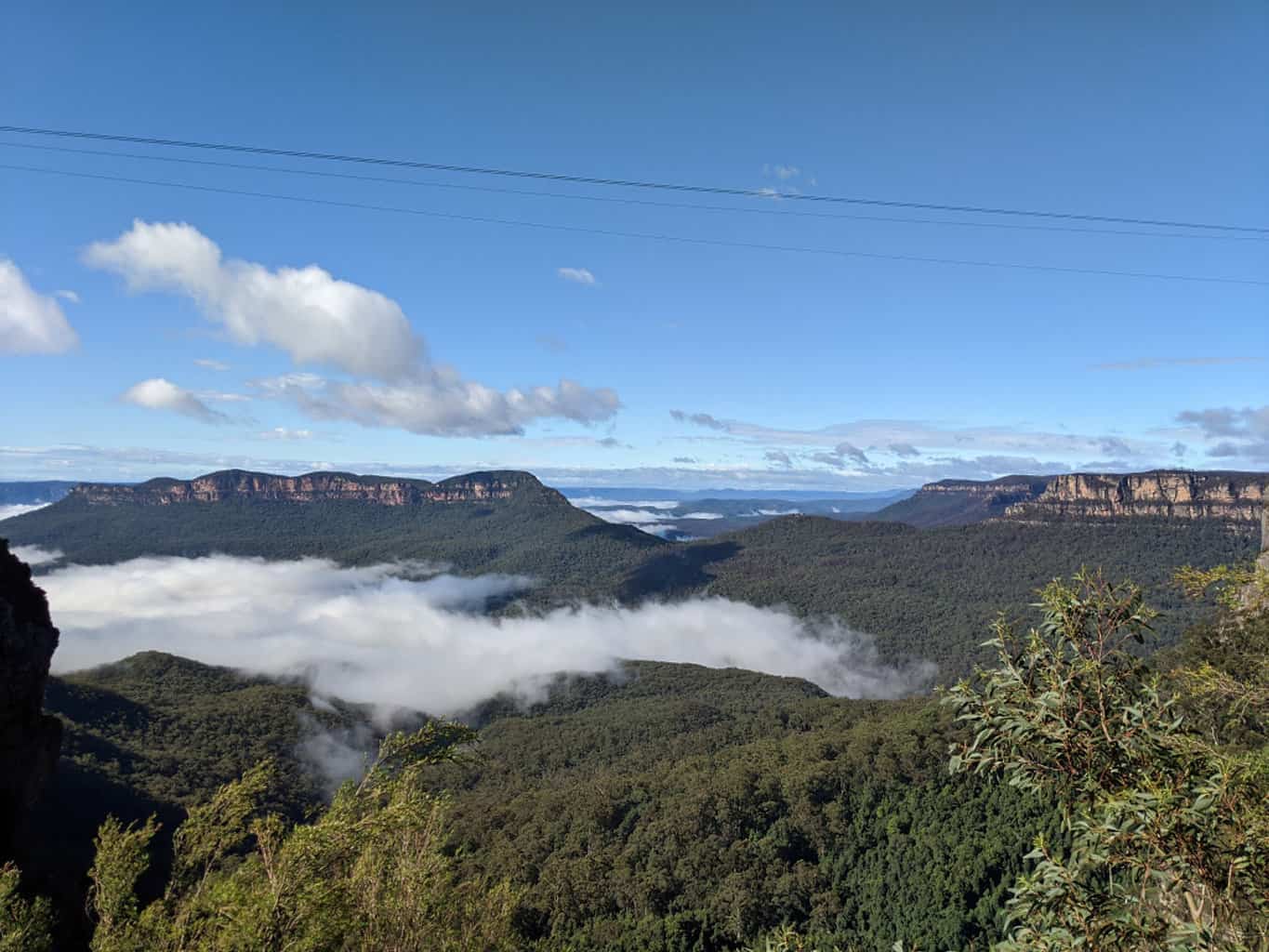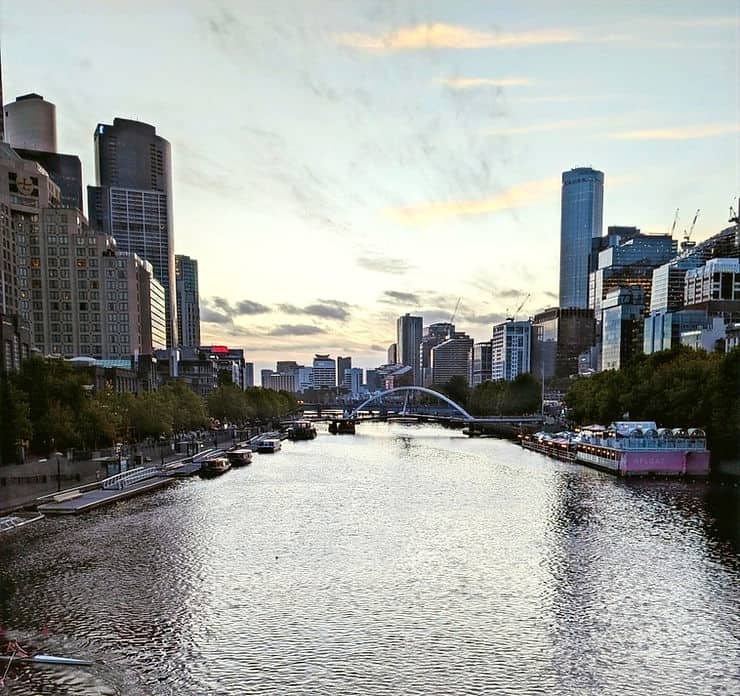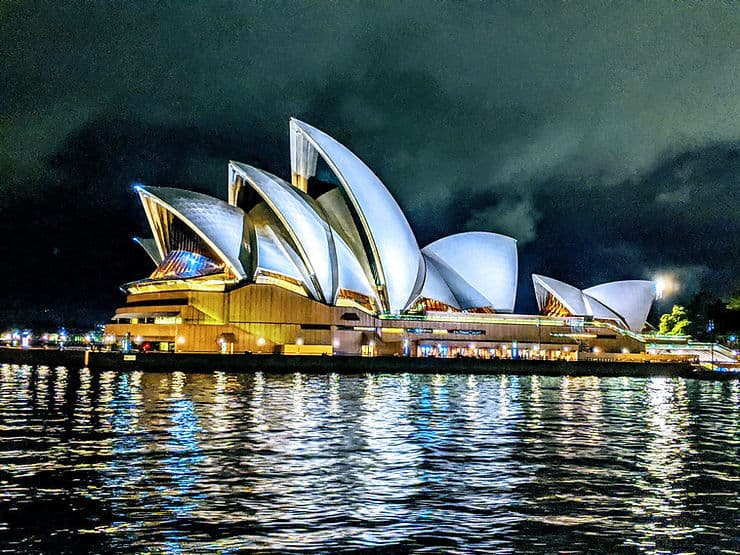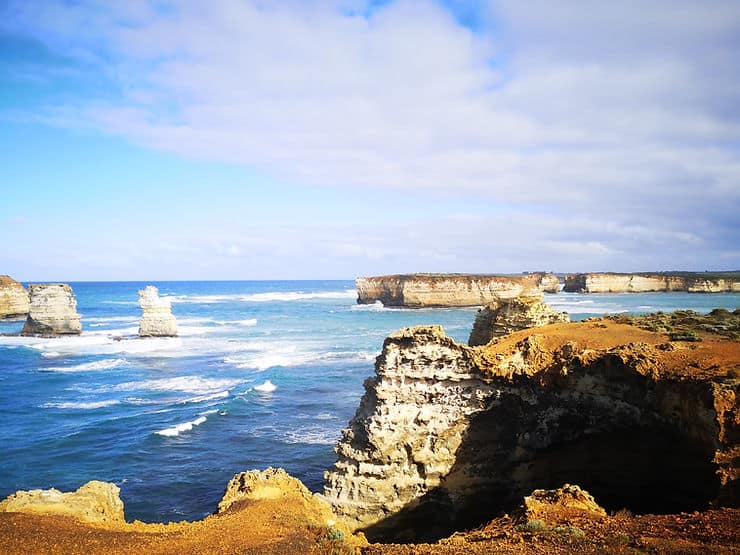
Sitting just a couple of hours west of the city of Melbourne, in Australia, are two of Victoria’s most spectacular natural attractions. Travel 3 hours inland from Melbourne and you will reach the stunning Grampians National Park, one of Australia’s most beautiful nature reserves, known for its sandstone ridges, magnificent waterfalls and native forests. Setting off along the coast from Melbourne and you will arrive at the route of the Great Ocean Road – one of the most scenic drives not only in Victoria, but in Australia too.
Visiting these two areas of natural beauty are an absolute must when travelling in the state of Victoria, and one of the best ways to visit the Grampians and the Great Ocean Road is on a self drive road trip, which is exactly what we did!
After 4 days exploring the vibrant city of Melbourne, we hired a car and set out on a 4 day road trip, combining 2 days hiking in the Grampians National Park with 2 days driving along the Great Ocean Road.
A quick overview of our self drive route: After some research, I decided that we would travel first to the Grampians National Park, which was just under 3 hours by car from Melbourne.
Day 1 – Drive to the Grampians National Park from Melbourne, visit McKenzie falls and stay overnight in the town of Halls Gap
Day 2 – Pinnacles Walk in the Grampians National Park and drive to Port Campbell on the Great Ocean Road to stay overnight
Day 3 – Set of on the Great Ocean Road, staying overnight in the village of Lorne, halfway along the route
Day 4 – Final section of the Great Ocean Road and drive back to Melbourne
If you enjoy hiking, then make sure you check out my post on how to visit the stunning Blue Mountains, just outside of Sydney in New South Wales.
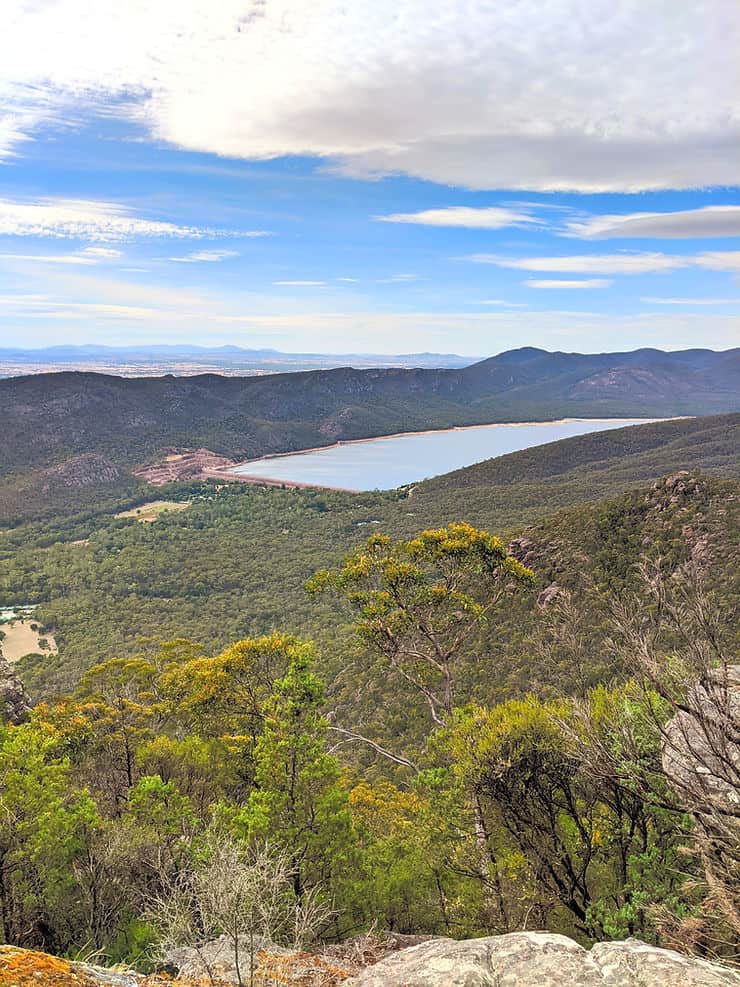
Here’s my full 4-day self-drive road trip itinerary for visiting The Grampians and the Great Ocean Road:
Day 1 – Melbourne to the Grampians National Park
We set off from Melbourne in the morning and drove the Grampians National Park, which took just 2 hours 40 minutes. We had intended to walk the Tunnel Walking track from the town of Pomonal with views of the Serra range, however when we arrived the sign was damaged and the route was not clearly marked, eventually disappearing, so we gave up after a while and returned back to the car (not a great start!).
The great thing is there’s so much to see and do in the Grampians, so we just jumped back in the car and headed to McKenzie falls, where we had much more luck!
Mckenzie falls are one of the largest waterfalls in the state of Victoria and are an absolute must-see for any visitor coming to the Grampians. The McKenzie falls are one of the most popular attractions within the National Park and it can get busy here, but it is absolutely worth it. The falls are just a short walk from the car park, down steep steps (there is also a lookout at the top for those who are unable to take the steps).
When you arrive at the bottom of the stairs, the falls are to your left and you will need to cross the stepping stones over the stream to reach the other side and get a proper view of the falls. A great photo spot is on the stepping stones itself, but this is not always possible if there are a lot of people waiting to cross the stream!
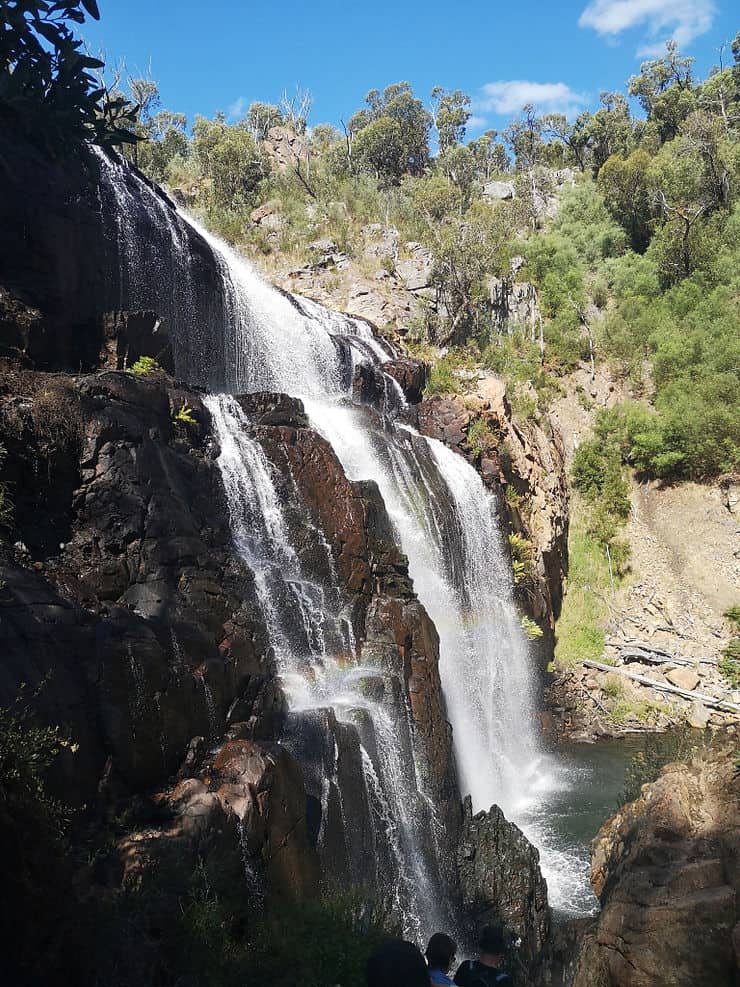
We stopped to admire the falls for a bit at the bottom, dipping our feet into the pool, before taking the walking track along the river. With most people stopping at the base of the falls, we found ourselves relatively alone on this walking track, making it really peaceful.
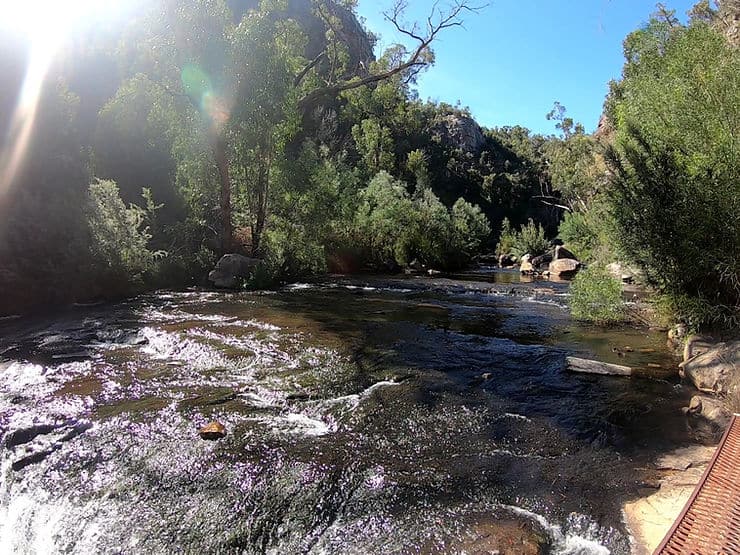
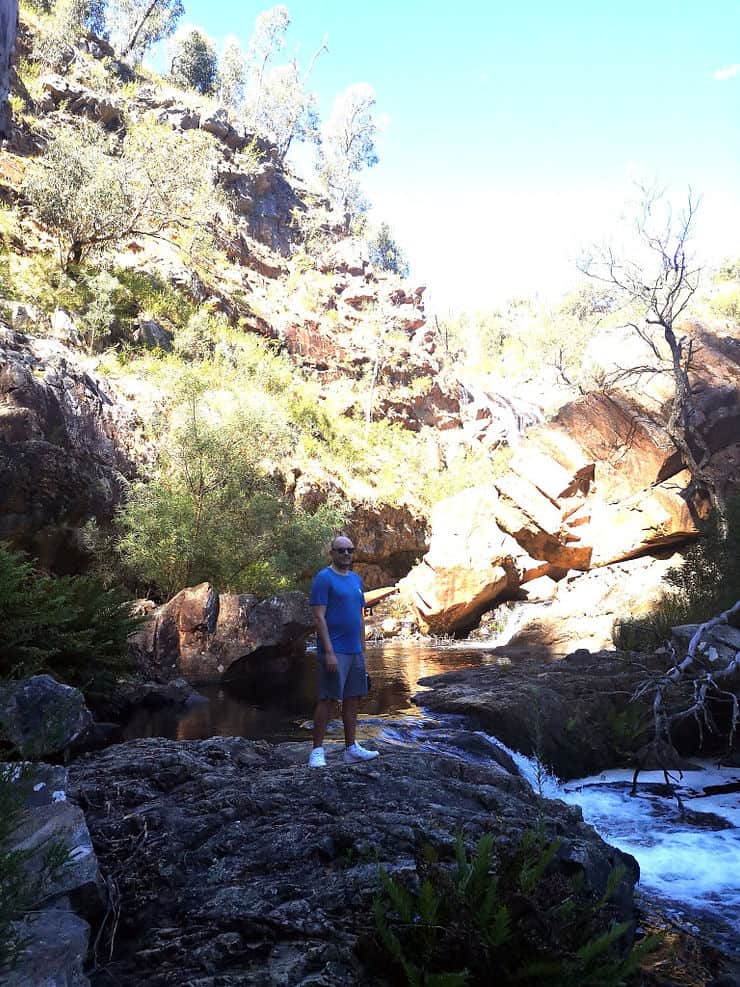
That evening, we stayed at a hotel in Halls Gap, which is one of the larger towns, located centrally within the Grampians National Park. It’s a great place to base yourself whilst exploring the Grampians and there’s several places to eat out, plus a shop and a great little bakery to stock up on picnic supplies!
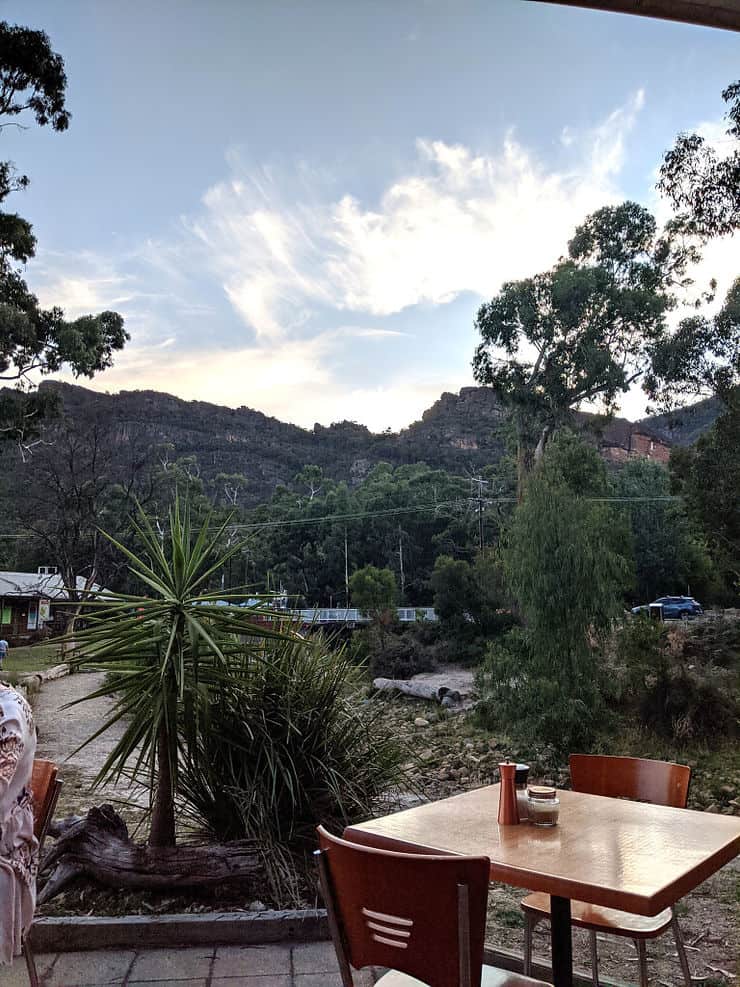
Day 2 – The Pinnacle walk and lookout in The Grampians
After picking up a packed lunch from the local bakery, we headed out to the Pinnacle walk and lookout. This 4.2km there and back hike is one of the most popular hiking routes in the Grampians and the Pinnacle lookout is one of the main highlights of the entire Grampians National Park, offering spectacular sweeping views across the valleys and sandstone mountains of the Grampians range.
After a short 15 minute drive from Halls Gap, we arrived at the Sundial carpark, where the Pinnacle walk starts from. The route is well sign posted and is a mixture of tracks and traversing rocks so sturdy shoes and a good level of fitness is required (as well as lots of water).
On your way up, be sure to stop for a moment and take in the views over Lake Bellfield. The viewpoint here is quite breathtaking!
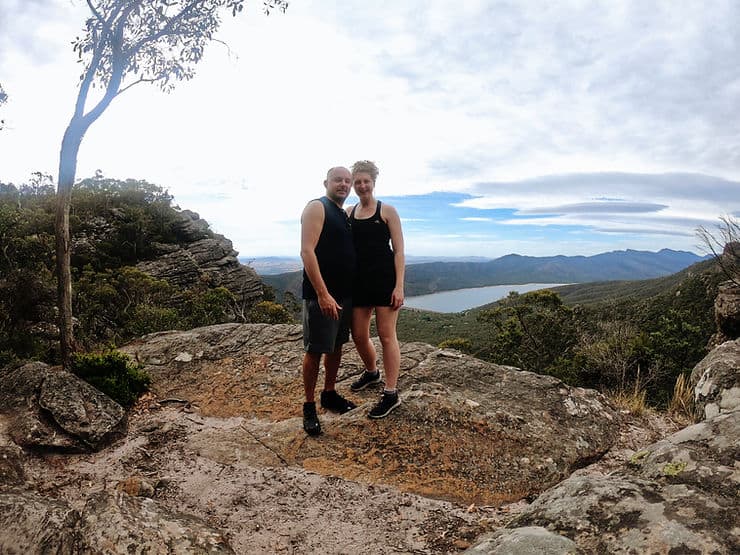
The closer you get to the top, the more scrambling over larger rocks you will have to do. We saw all ages, including children, hiking here so as long as you are relatively fit, it should be manageable.
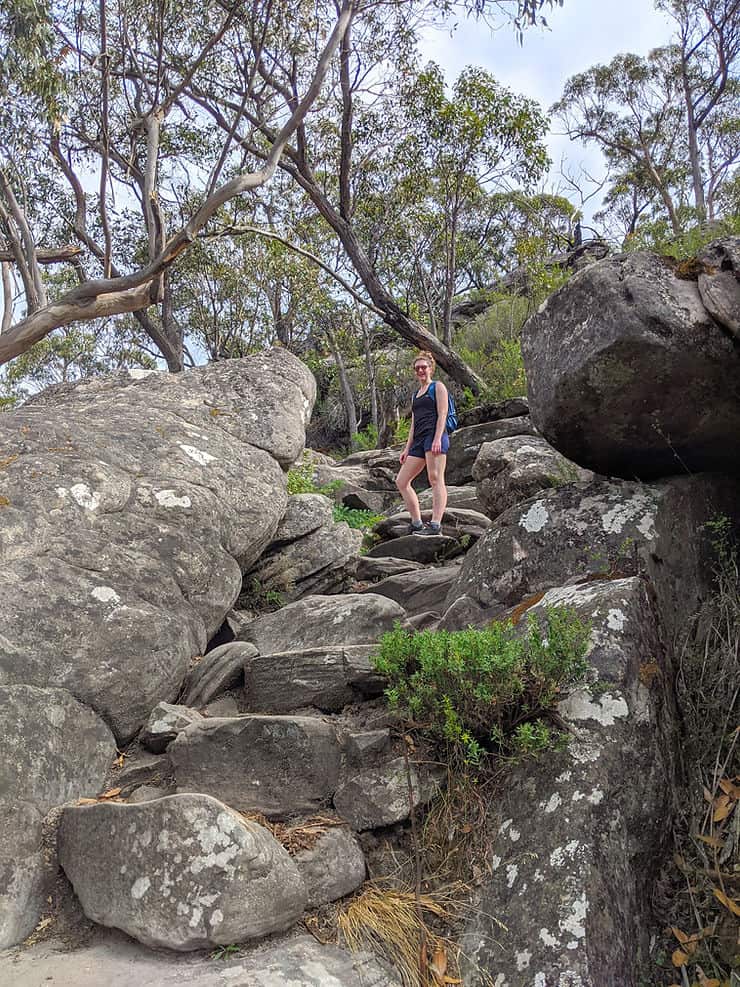
The views from the Pinnacle lookout are amazing, you can understand why it is one of the highlights of the Grampians!
Around the lookout point, there are so many large flat rocks where you can sit, and this is a perfect spot to enjoy a picnic, admiring the gorgeous view over the peaks of the Grampians. To get back down to the car park, you simply retrace your steps back down the same route.
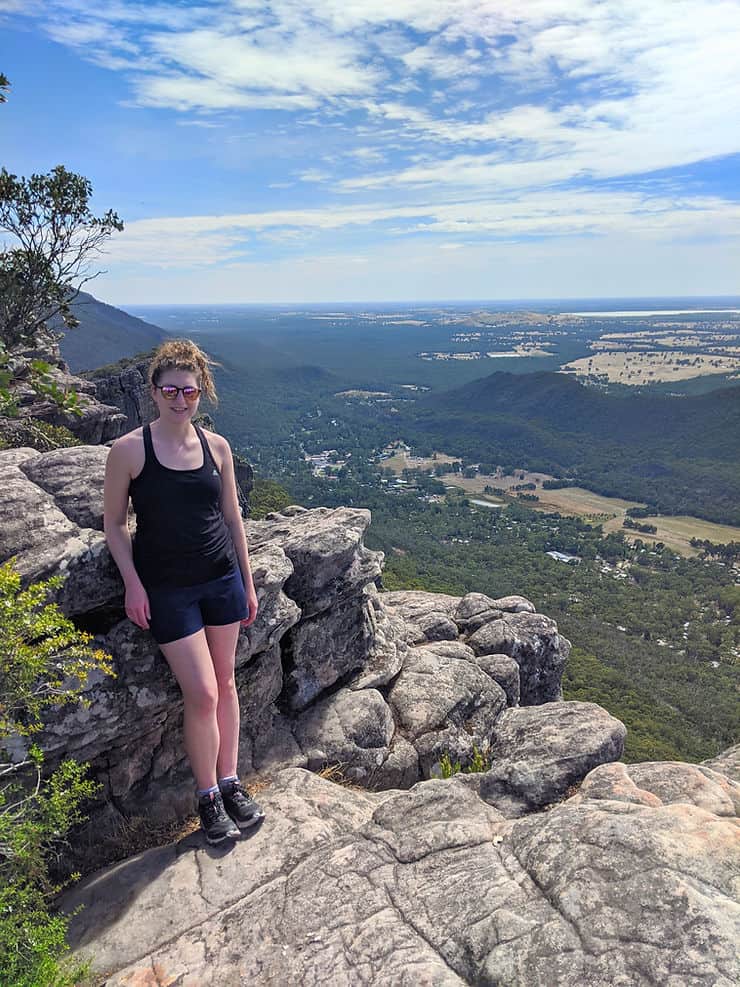
There are so many different hiking trails within the Grampians National Park, but I would definitely recommend the Pinnacles. Its proximity to Halls Gap means that it is not too far to travel if you are staying there and the route is so well marked that you don’t need to think about it, just simply enjoy the gorgeous view! There is a reason that this is one of the most popular walking trails in the Grampians National Park and it is definitely worth the effort!
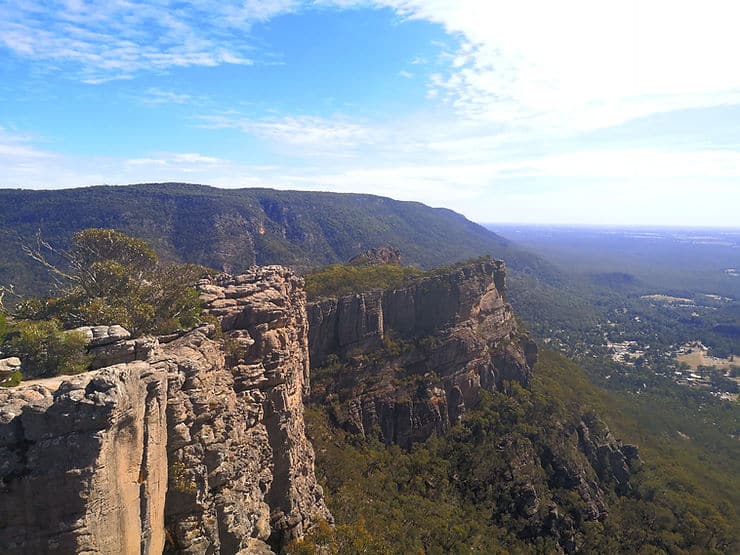
After hiking the Pinnacle trail in the morning, we drove to Silverband falls later in the afternoon. There are so many beautiful waterfalls located all around the Grampians National Park, but we picked the Silverband falls because they are close to the Pinnacle lookout and we did not have lots of time left before we needed to set off.
The walk to the Silverband waterfalls is only 1km from the car park along an easy track through a shady forest. Unfortunately when we arrived the waterfall had all dried up except for a tiny trickle and the river was all dry, but the walk through the forest was pretty. (It is worth noting that we visited this area in February 2020, only a few months after Australia suffered so badly with bush fires caused by a prolonged period of little to no rain in so many places, so some areas were quite dry).
After visiting the Silverband falls, it was time for us to leave the Grampians National Park and head to the Great Ocean Road. You could easily spend several days exploring all The Grampians has to offer and for a hiking enthusiast like myself, it was a shame we couldn’t spend more time here, however we only had the car for a few days and had a lot to fit in!
Driving towards the coast and the Great Ocean Road, we decided to use Port Campbell as our overnight base.
Day 3 – The Great Ocean Road part 1 (The Bay of Islands to Lorne)
We headed west from Port Campbell to the Bay of Islands viewpoint, which is where we officially started our drive along the Great Ocean Road. (We skipped the section between Port Fairy and the Bay of Islands as parts of this section are further inland and we only had two days to follow the Great Ocean Road).
Setting off from the Bay of Islands, we followed the Great Ocean road, stopping at various viewpoints and iconic landmarks along the way. Some of the must see stops along this section of the Great Ocean Road are the Bay of Islands, The Grotto, London bridge, Loch Ard Gorge and the Twelve Apostles.
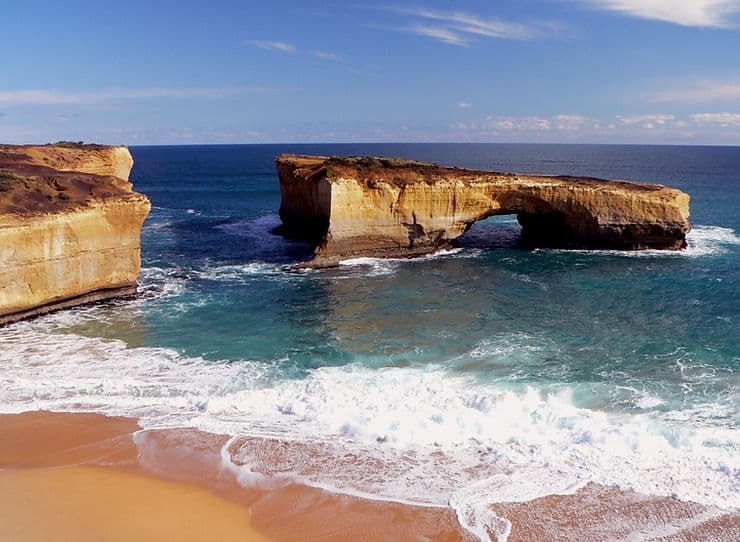
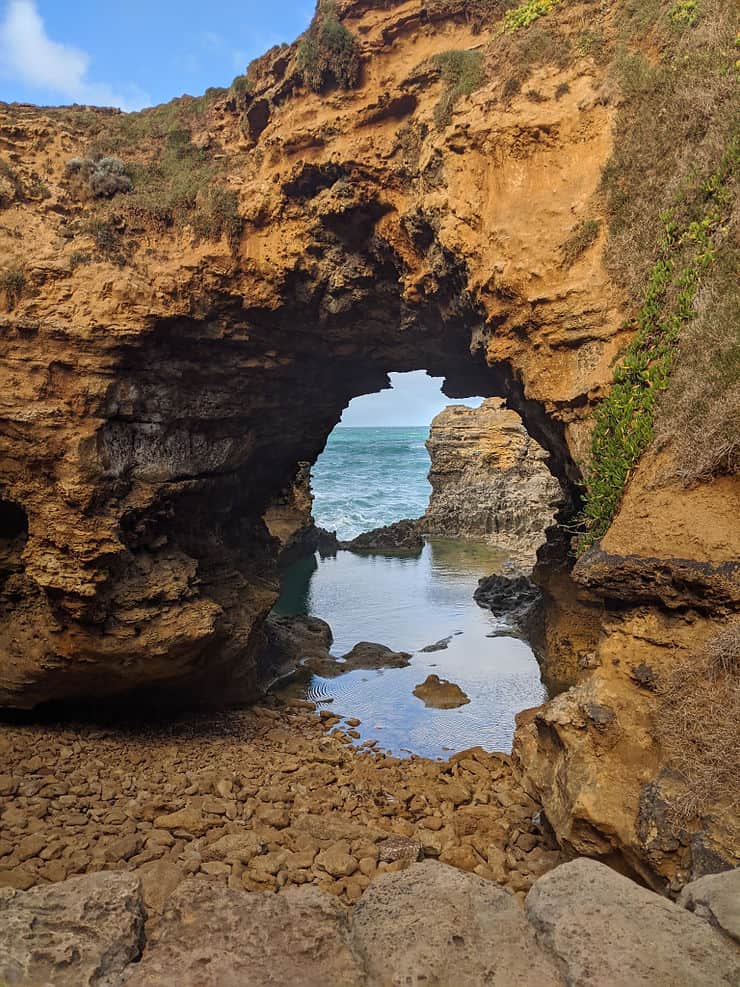
I was expecting these viewpoints to be quite busy, however they were not that busy at all, you didn’t have to jostle to get a good view or photo. I don’t know if that’s because we went slightly out of season or because we were doing the route in the opposite direction to most of the tour companies (I had read that most people coming from Melbourne will do east-west instead of travelling west-east as we did).
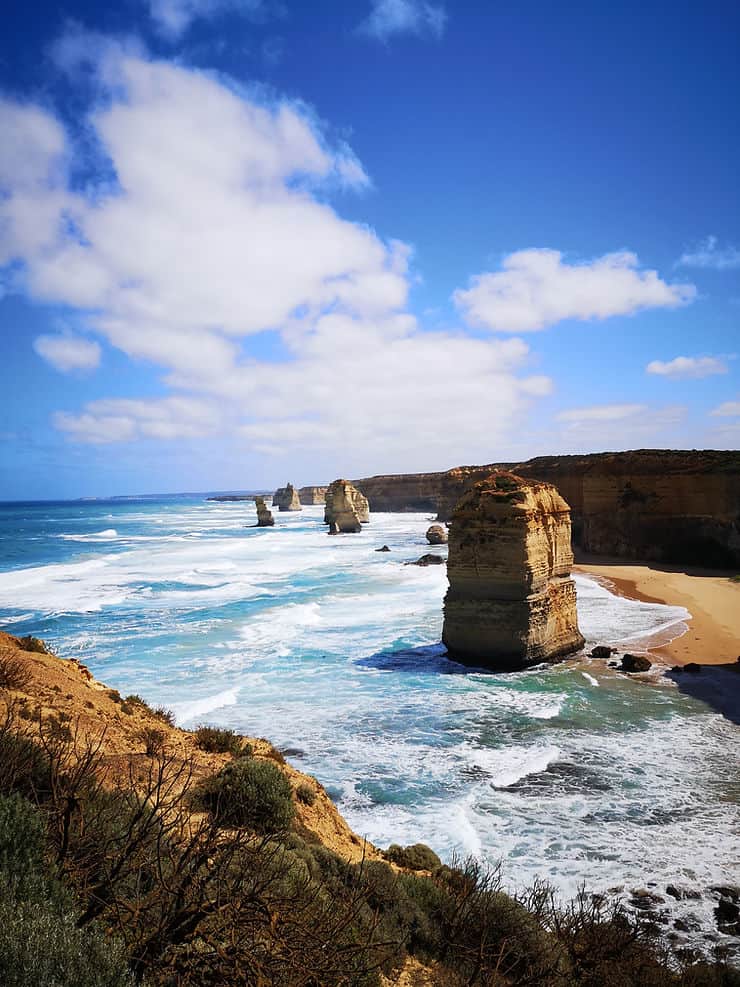
The Twelve Apostles are the main attraction and the most well known spot along the Great Ocean Road, however in my opinion, the Bay of Islands and Loch Ard Gorge are better. The Bay of Islands is quieter and there are several viewing platforms so you can get views from various angles. At Loch Ard Gorge you can take the steps to the beach, where you are surrounded by the sandstone cliffs, which is pretty stunning.
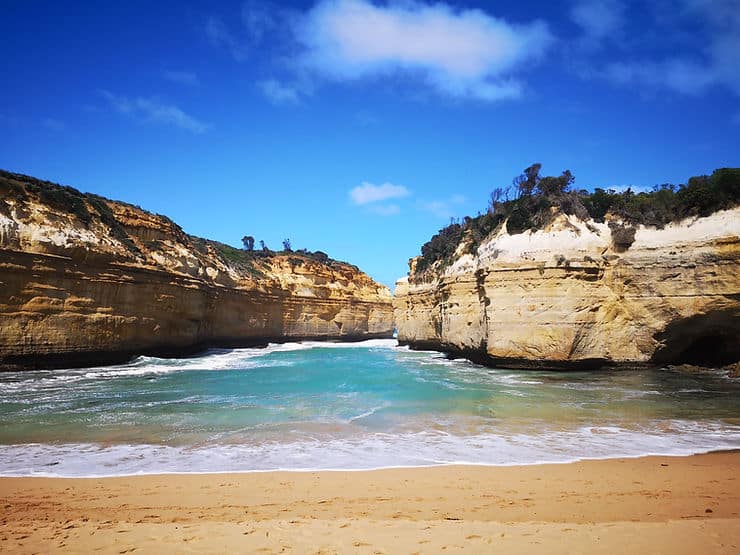
After the Twelve Apostles, we continued along the coast, stopping at various locations which we either found on Google maps or we saw sign-posted from the road. I love the freedom that having your own car gives you, it was so nice to just pull in when we saw something we wanted to explore! We found a great little picnic spot this way, situated along the Gellibrand river in the Princetown river reserve, just outside of Princetown.
The town of Apollo bay is also a great place to stop along the Great Ocean Road. Here, there are plenty of shops and cafes to grab some lunch, or treat yourself to an ice cream and stroll along the sandy beach.
Leaving the town of Apollo Bay, we continued onto the small town of Lorne, where we were staying for the night. On the way in, we stopped at Sheaok falls car park and walked the short distance to the Sheaok falls. Unfortunately these falls were dried up at the time of our visit and only a small trickle remained, however it was a very pretty spot. Lorne is a small fishing town but it does have a couple of restaurants and a shop as well as a hostel which serves pizza for $10. Make sure you head to the beach to watch the surfers tackle the crazy waves here!
Day 4 – The Great Ocean Road part 2 (Lorne to Torquay) and then to Melbourne
Before leaving Lorne, we visited the Erskine falls, a 30 metre waterfall with two lookout points on a raised wooden path. The Erskine falls are a lovely little spot just outside the town of Lorne and worth a quick visit as you pass through along the Great Ocean Road.
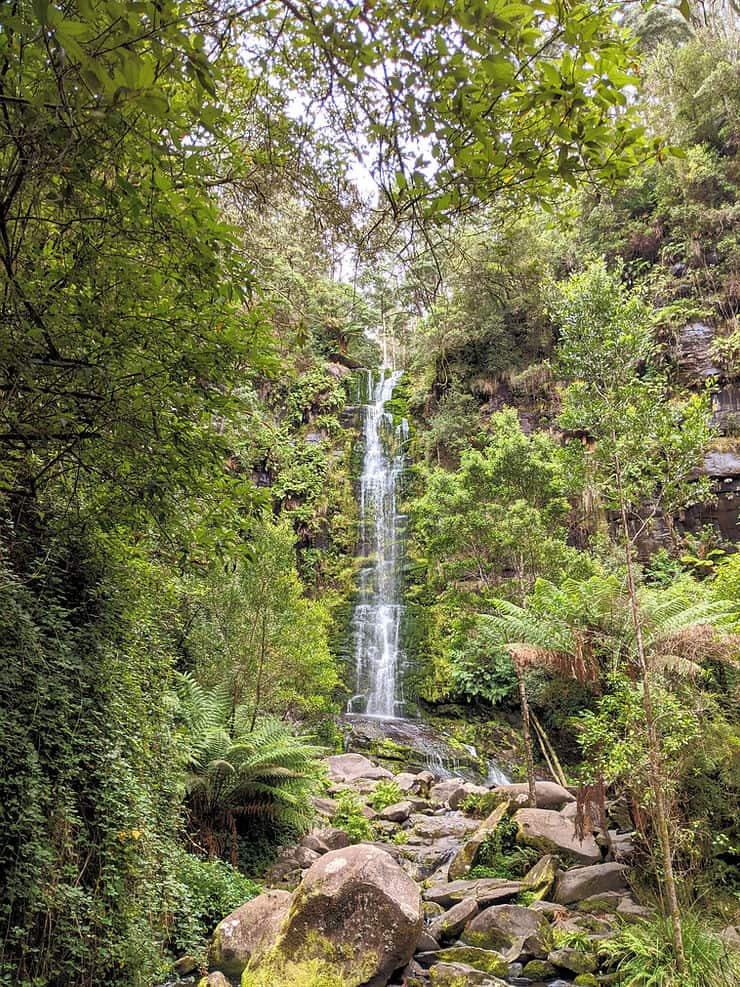
There’s also some great scenic viewpoints along this section of the Great Ocean Road, including the Memorial Arch, Split point lookout and Reef lookout, all of which offer gorgeous views out to the ocean and across the coastline and sandy beaches of the Lorne-Queenscliff coastal reserve.
We stopped at the pretty town of Anglesea and had a stroll along Anglesea beach, which is a beautiful walk alongside the impressive Anglesea cliffs.
From Anglesea, the towns along the Great Ocean Road progressively become more developed as you get closer to Melbourne. Torquay is the final town which is officially on the Great Ocean Road and it is a great town for watching surfers take on the waves – or to have a go yourself! From Torquay, it took just over an hour to drive back to the city of Melbourne to drop off our hire car.
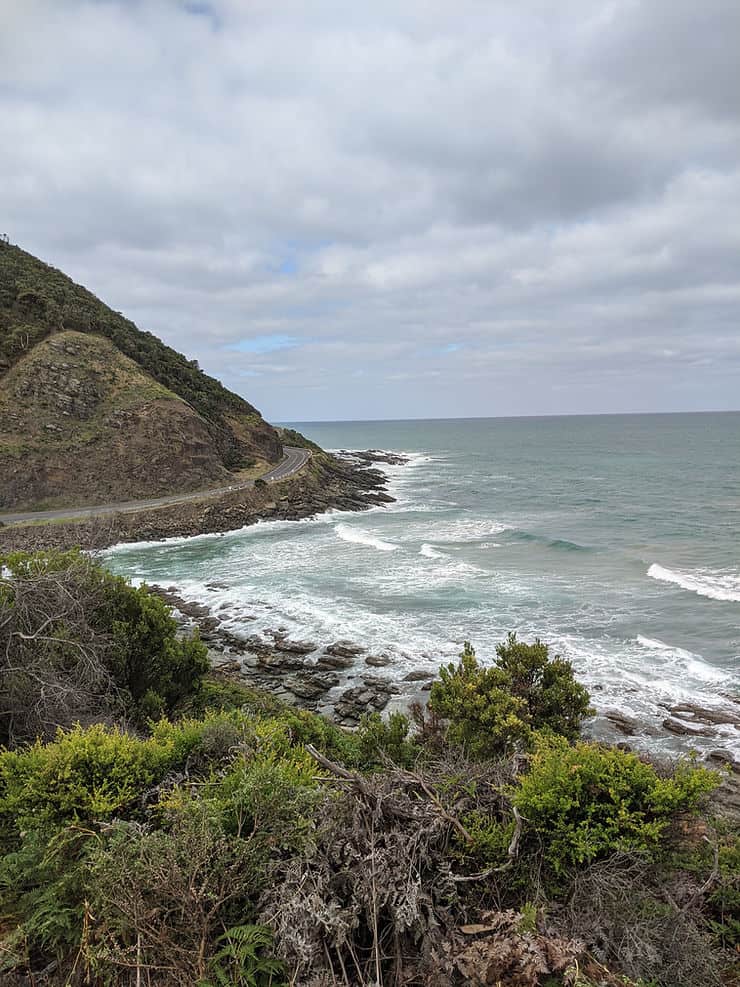
We had the best 4 days on our road trip, visiting the Grampians National Park and the Great Ocean Road. Most travellers will leave Melbourne and head straight to Sydney, travelling up Australia’s famous east coast backpacking trail, however this 4 day self drive road trip was one of my favourite itineraries from our time in Australia. It is 100% worth taking some time to explore Victoria beyond the city of Melbourne, the area has so much to offer.
Useful information for visiting The Grampians
1. Do you have to pay for parking?
Almost all the car parks within the Grampians National Park were free of charge, it is only once you get into some of the towns where you might need to pay for parking, though this is rare, and many of the hotels have free parking for guests
2. Do you have to pay to visit the Grampians?
There is no entrance fee for the Grampians National Park, just make sure that you take your rubbish with you to help keep the park clean and the wildlife safe
3. What wildlife is in The Grampians?
When hiking in the Grampians National Park, you will more than likely come across Kangaroos and Wallabies, just give them space and they won’t cause you trouble. Also be on the lookout for snakes and spiders, just be careful where you tread!
4. How long do you need in the Grampians?
We stayed for 1 night, 2 days in the Grampians, and in hindsight, I wish that we had at least 2 nights. Staying for 2 or 3 nights in the Grampians National Park is a good amount of time, this would have given us the opportunity to explore the National Park beyond the area surrounding Halls Gap.
Useful information for visiting The Great Ocean Road
1. Do you have to pay for parking?
Most of the car parks along the Great Ocean Road are free of charge, especially at the viewpoints. It is only once you arrive in the larger towns where parking charges apply.
2. Can you sleep along the Great Ocean Road?
You are not allowed to sleep in your car or camper along the Great Ocean Road, but there are several camping grounds all along the route.
3. How long does it take to drive the Great Ocean Road?
The Great Ocean road is 664 km/413 miles in length and officially runs from the popular surf town of Torquay to the small historic fishing village of Port Fairy. If you were going to drive it in one go, it would take you 9.5 hours, however it is much better to break it up and enjoy a leisurely journey. I would recommend at least 1 night and 2 days to travel along the Great Ocean Road. Spreading the drive over a couple of days will allow you to take your time and stop at the towns and lookout points along the Great Ocean Road, so you can fully appreciate the beautiful views on one of Australia’s most scenic drives.
4. Can you visit the Great Ocean Road without your own car?
Yes. There are many tour companies that will offer a tour of the Great Ocean Road as a day trip from Melbourne, but aside from the fact that you won’t have much time in each place, you also won’t have the flexibility to stop at random viewpoints and beaches along the way, which is a great shame as there’s some gorgeous spots along the Great Ocean Road which are less well known but 100% worth visiting.
5. What is the weather like?
It’s very windy and can get quite cool along this coastline, so wrap up!
Save this post for your road trip!
All links on this website are my own recommendations or sites I found useful when planning and are not affiliated. I do not receive any commission from including these links within this blog.

